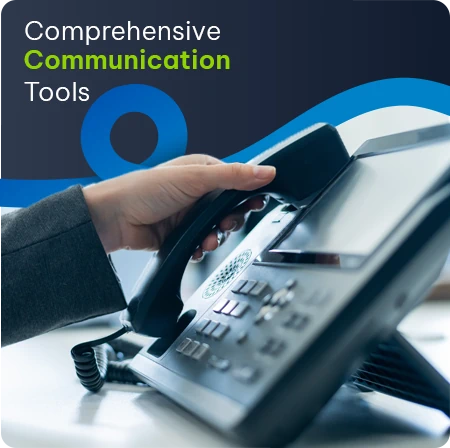With many business engagements now taking place over the phone, call recording technology has become crucial to organisations when it comes to compliance, quality assurance and dispute resolution. A long-standing challenge has been the exorbitant costs of on-premise infrastructure coupled with the additional license requirements that limited call recording to enterprises; with the arrival of cloud-based services, however, this functionality is now cost-effective and accessible to all businesses that require it.
“Depending on the industry and the regulation that governs it, call recordings have to be stored for a certain period of time. This means that any organisation with a call centre, contact centre or support centre environment dealing with contractual engagements, or working with personal information over the phone, should have invested in regulatory-compliant call recording,” says Natalie van der Merwe, Head of Product: Telephony, at Vox.
And, the process is easier than ever: rather than having to buy expensive hardware and software to enable on-premise call recording, Van der Merwe says the cloud has commoditised the service in a way that scales up as required by the business, meaning they don’t need to invest in infrastructure and only pay for what they use. Delivered as a true software-as-a-service, regulatory-compliant call recording is no longer preserved for those who can afford high-end enterprise technologies.
“Market-leading providers, such as CallCabinet, are voice platform agnostic, meaning that an organisation can have a blend of on-premises, hybrid and hosted telecoms infrastructure across multiple branches – using different PBX technologies – and still make use of a single end-to-end recording solution for ease of use. By working with South African partners such as Vox for over 15 years, they are able to blend their global expertise with local knowledge in order to better serve customer requirements,” says Matthew Balcomb, EMEA Sales and Marketing Director at CallCabinet Corporation.
So, what makes a call recording regulatory compliant? Balcomb says one of the factors in adhering to many of the above-mentioned pieces of legislation, is data sovereignty – the concept whereby data is recorded, processed and stored within the borders of a particular country. Here it is especially helpful to work with a provider that has global reach as they not only understand the different regulatory requirements across various countries but can offer call recording services wherever a business operates while maintaining data sovereignty.
He explains that it is not all about compliance though, as organisations can also use call recording data to improve the quality of their service – we are all familiar with phoning a call centre only to be greeted by a message stating that ‘this call is being recorded for quality purposes’. Here too, cloud-based services, assisted by artificial intelligence (AI) is making a difference: rather than having a dozen supervisors manually listen to calls, AI tools give them real-time automated AI-assisted insight into how agents are dealing with callers.
“In addition, all call recordings are individually encrypted using 256-bit Advanced Encryption Standard (AES) at the source, with a rotating encryption methodology that is unique to each call made, recorded, and then securely stored. This can be used to prove that a recording has not been tampered with. In addition, call recordings play a crucial role when it comes to dispute resolution as well,” adds Van der Merwe.
Balcomb points out that a concern for organisations that have invested heavily into on-premises call recording infrastructure is what to do with their legacy recording data. Traditionally, they would have to continue to pay a licence fee or for a managed service to maintain their legacy recordings for the length of time as required by legislation. To address this, CallCabinet has the ability to unencrypt, ingest and process legacy recordings in a compliant manner into the cloud, with all data presented in a single pane of glass.
“Not complying with these pieces of legislation can result in not only heavy financial penalties for organisations but even face jail time in extreme cases. This shifts the need for regulatory-compliant call recording from a ‘nice to have’ to being a necessity for certain types of businesses due to growing regulatory requirements. Thankfully, cost-effective, cloud-based, regulatory-compliant call recording is now accessible to more businesses than ever before,” concludes Van der Merwe.












